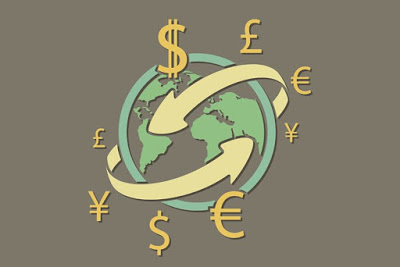
The first session of September was marked by the US Labor Holiday. Several developments will help shape the investment climate.
Japan: A surge in capital expenditures will boost expectations for an upward revision to Q2 GDP, which will be released on September 9 in Tokyo. Recall that Japan’s economy contracting by 0.2% in Q1, but rebounded in Q2. The revisions may almost double the initial estimate of Q2 GDP of 0.5%. Capital expenditures jumped 12.8% in Q2, nearly twice expectations and follow a 3.4% increase in Q1. It is the strongest quarterly increase since 2007. Separately, the manufacturing PMI was unchanged at 52.5%. The 10-year JGB edged higher and the closing yield, just below 12 bp, is the highest in almost a month. The Nikkei, which has been testing a cap near 23,000 pulled back by nearly 0.7%, the largest loss in about two weeks. Across the region, share prices fell, and the MSCI Asia Pacific Index excluding Japan fell two-thirds of a percent. It was the third day of losses. The dollar was mostly confined to a15 tick range on either side of JPY115.
China: The Shanghai Composite slipped almost 0.2% to extend its downdraft for a fifth consecutive session. The Caixin manufacturing PMI eased to 50.6 from 50.8 in July. It was a slightly larger than expected decline. Of note, export orders were below the 50 boom/bust level for the fifth consecutive month, even though there was a little improvement to 48.8 from 48.4. The yuan edged higher to extend the pre-weekend gains, but it is well within August’s range. The yuan’s stability was aided, we think, as short-term yuan rates (3m SHIBOR) steadied and turned higher. However, Monday was the third consecutive session that it eased.
Turkey: The sharp depreciation of the lira is boosting prices in Turkey more than economists expected. The CPI jumped 2.3% in August for a 17.9% year-over-year rate. It was 15.85%. The Bloomberg median forecast was 17.6%. The central bank meets on September 13. Although orthodoxy dictates that Turkey lift interest rates (key one-week repo rate is at 17.75%), no interest rate can compensate investors for the currency risk, as Argentina aptly demonstrates. Moreover, as Turkey’s PMI indicates, policymakers and investors should be prepared for an economic contraction. The August manufacturing PMI fell to 46.4 from 49.0, matching the multi-year low seen in May. It has not been above 50 since March. The central bank threatened to take fresh action and the lira recouped around half of its earlier losses, though still finished off around 1.5% ( ~TRY6.63). Turkey’s 10-year yield fell a little more than 60 bp to 19.89%.
















Leave A Comment